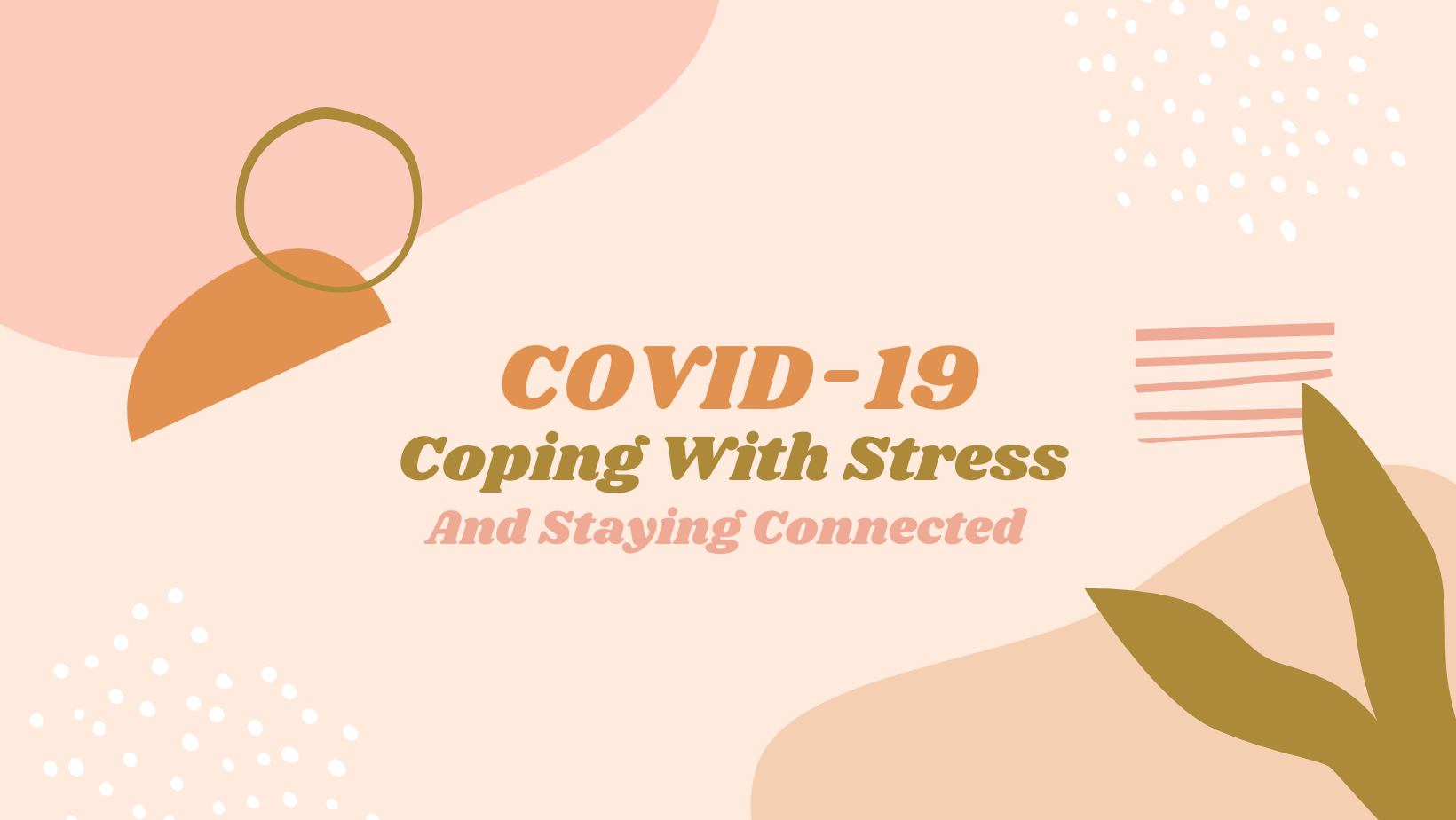Living through a pandemic is hard. Public health actions, such as staying 6 feet apart from other people, avoiding crowds, and avoiding poorly ventilated spaces, are necessary to slow the spread of COVID-19. But they can make you feel lonely, increasing your stress and anxiety.
Stress can cause the following:
- Feelings of fear, anger, sadness, worry, numbness, or frustration
- Changes in appetite, energy, desires, and interests
- Difficulty concentrating and making decisions
- Difficulty sleeping or nightmares
- Physical reactions, such as headaches, body pains, stomach problems, and skin rashes
- Worsening of chronic health problems
- Worsening of mental health conditions
- Increased use of tobacco, alcohol, and other substances
It is natural to feel stress, anxiety, grief, and worry during the COVID-19 pandemic. Below are ways that you can help yourself, others, and your community manage stress.
HEALTHY TIPS FOR COPING WITH STRESS
Take a News Break
- It’s good to stay informed of what’s going on in your community and the world. But constantly hearing about the pandemic can cause you stress.
- Try to limit watching, reading, or listening to news stories to once a day
Take a Physical Break
- Take a few minutes to unwind by doing activities you enjoy, such as listening to music or gardening.
- Take deep breaths and stretch to relieve stress and tension.
- Meditation can help you relax and calm down. It can also improve your mood. Meditation commonly involves:
- Getting into a comfortable position (such as sitting or lying down) in a quiet room or place where you won’t be distracted
- Focusing your attention, such as on a specially chosen word or set of words, an object, or the sensations of the breath
- Keeping an open attitude by letting distractions come and go naturally without judging them.
Take Care of Your Health
- Try to eat healthy, well-balanced meals.
- Don’t drink too much alcohol. Also avoid tobacco products and substance use. Substance use includes using illegal drugs and the improper or unhealthy use of a prescribed or over-the-counter medication.
- Make time to unwind for the day and get plenty of sleep
- Continue with routine preventive measures that your health care provider recommends, such as vaccinations and cancer screenings.
- Get a COVID-19 vaccine when it’s your turn.
STAYING CONNECTED
Being in a pandemic doesn’t mean you have to disconnect from people. There are ways for you to still safely connect with your community:
- You can connect online, through social media, or by phone or mail.
- It’s also safe to meet people outdoors while wearing a mask, staying at least 6 feet apart from one another, and avoiding crowds.
Get Interactive
- Talk often with friends and family whether through a phone call or a video chat app like FaceTime, WhatsApp, or Google Duo. You can find instructions on how to use these technologies on the Internet. Type “how to use ________” in an internet search engine like Google.
- Join an interactive online discussion group or book club. Or watch livestreams that are interesting to you that have live chats where you can talk directly to people.
Check In on Your Neighbors
- From a safe distance, check in on your neighbors who live alone to ensure they are okay and spend some time interacting with them.
- Strike up regular conversations on a set schedule or whenever you can find the time
During times of increased physical distancing, people can still maintain social connections and care for their mental health. The tools mentioned above can help reduce your stress and anxiety and stay connected to your family and community.
If you’re still facing challenges that are stressful, overwhelming, or causing strong emotions, reach out to organizations like How Right Now. This organization was created to address people’s feelings of grief, loss, and worry during COVID-19. This initative offers information and support to help you cope and remain resilient through the COVID-19 pandemic.
FOR MORE INFORMATION ON COPING WITH STRESS
Learn more about coping with stress. Visit the CDC website.

